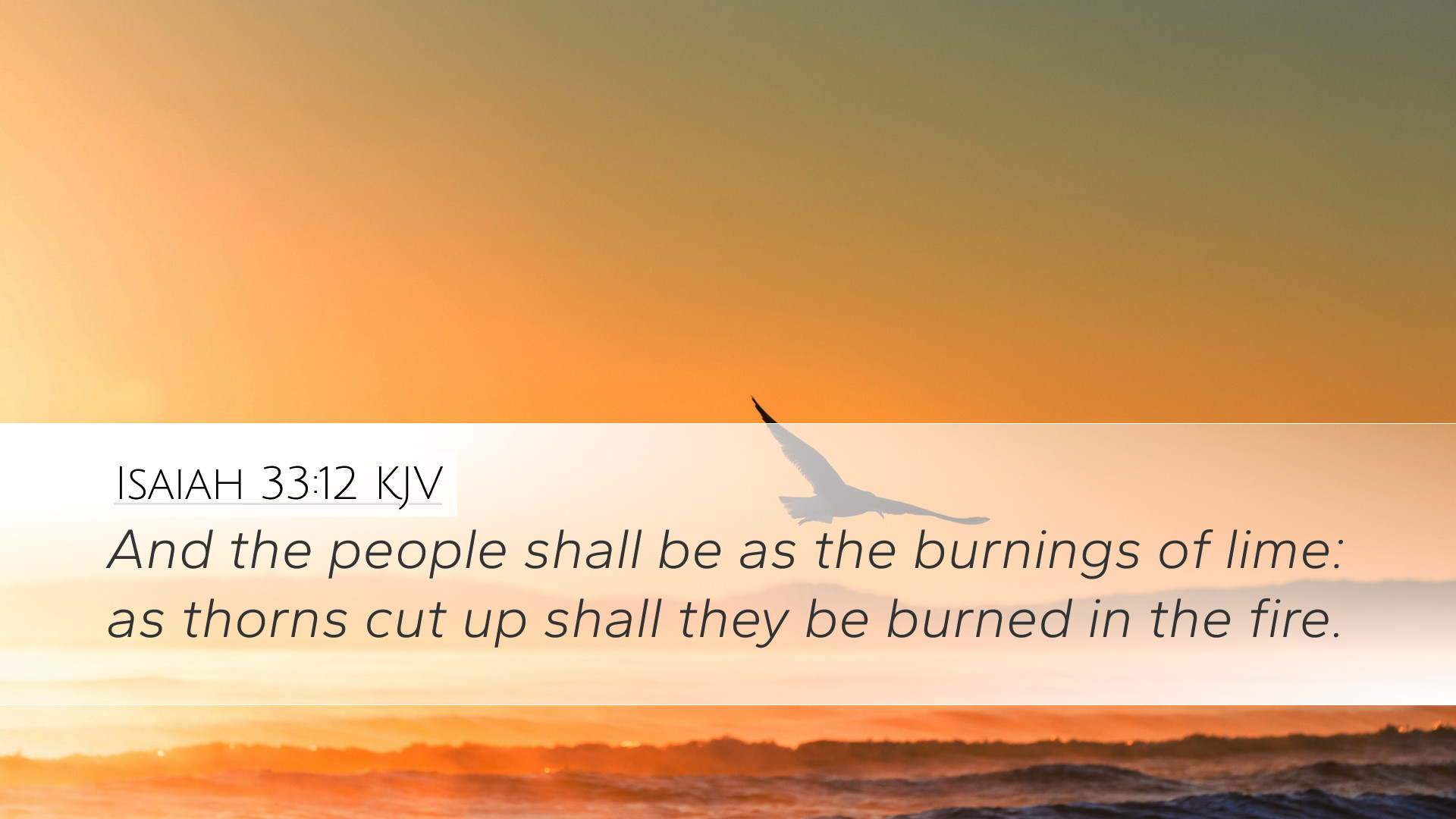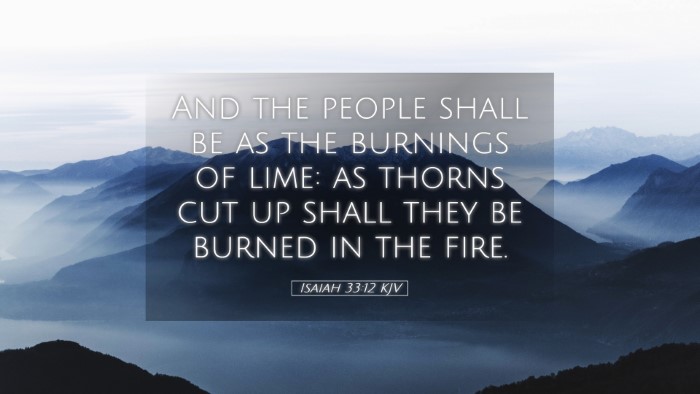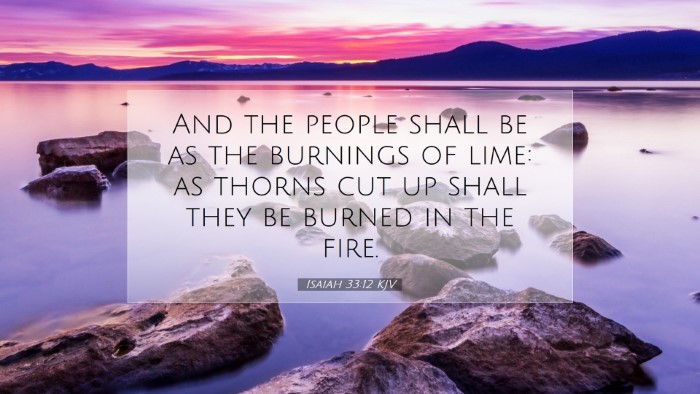Commentary on Isaiah 33:12
Verse Translation: "And the people shall be as the burnings of lime: as thorns cut up shall they be burned in the fire." (Isaiah 33:12, KJV)
Introduction
The verse from the book of Isaiah presents a powerful image of judgment and destruction. In this commentary, we explore various insights from renowned public domain theologians, including Matthew Henry, Albert Barnes, and Adam Clarke, to uncover the depth and implications of this message. The context surrounding Isaiah 33 reveals a society under threat, facing divine justice with profound urgency.
Contextual Background
Isaiah prophesies during a tumultuous period for the people of Judah, marked by external threats and internal corruption. This chapter addresses the impending doom faced by those who oppose God and highlights the ultimate triumph of righteousness.
Historical Context
- Syrian and Assyrian Threats: The overwhelming power of these nations loomed over Judah, prompting fear and internal strife.
- Judgment and Hope: While judgment is the theme, this passage also emphasizes hope for the remnant that follows God.
Verse Analysis
Destruction Compared to Lime Burnings
Matthew Henry interprets the phrase "as the burnings of lime" as a metaphor for the severe judgment awaiting those who stand against God. Just as lime, when burned, produces a highly destructive substance, so too will the unrighteous meet their end through divine judgment.
Thorns Cut Up and Burned
Albert Barnes elaborates on the imagery of thorns. Thorns are considered worthless and are often used as fuel for fire in biblical times. In this context, they represent the futile efforts of the wicked, who, when cut down, are destined for rapid destruction. This signifies that the enemies of God will face an inescapable fate.
Theological Implications
The Righteous Judgment of God
Adam Clarke emphasizes that this verse serves as a reminder of the righteousness of God’s judgment. The imagery is stark: God’s wrath is not arbitrary but justly directed at sin and rebellion against His sovereign rule. The certainty of this judgment calls the faithful to perseverance in righteousness.
The Role of the Faithful Remnant
Throughout the book of Isaiah, a theme of a faithful remnant persists. While the masses may suffer due to sin, those who remain faithful will witness God’s mercy. This duality illustrates the importance of loyalty to God amid trials and tribulations.
Pastoral Reflections
Encouragement in Troubling Times
For pastors and church leaders, Isaiah 33:12 echoes a call to remind their congregations of the seriousness of sin and the certainty of divine judgment. However, it also serves as an encouragement to remain steadfast in faith and trust in God’s ultimate justice and mercy.
Application for Believers
- Examine Personal Conduct: Believers are invited to reflect on their lives, ensuring they align with God’s will, avoiding the fate of the unrighteous.
- Hope in God’s Justice: The faithful can find solace in the assurance that God will ultimately vindicate righteousness and judge the wicked.
Conclusion
Isaiah 33:12 stands as a potent reminder of God's justice and the fate awaiting those who oppose Him. The insights from Matthew Henry, Albert Barnes, and Adam Clarke reinforce the significance of this verse for students, theologians, and scholars alike. As we navigate a world often at odds with divine will, may this verse encourage us to hold fast to our faith, living righteously in anticipation of God’s ultimate justice.


